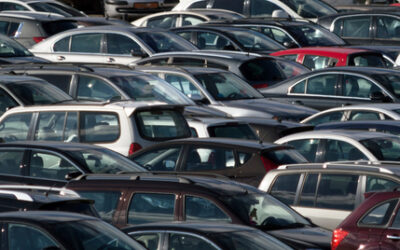
A traffic stop without insurance creates problems that build quickly. An expired policy, a missing card, or no coverage at all can damage your record and drain your wallet for years. Even a brief lapse can create long-term consequences.
Some drivers believe a routine stop will end with a warning or a small fine. Los Angeles DUI lawyers often hear from people who underestimated the outcome until penalties started piling up.
Yes, driving without valid insurance goes on your record. It also leads to a ticket, raises your rates, and complicates every future interaction with the DMV or an insurance company.
Driving Without Insurance: What Happens First?
When a police officer stops you and you can’t show proof of insurance, things move quickly. You could receive a ticket on the spot. In California, that usually means a civil penalty of $100 to $200 for a first-time offense and up to $500 for a second or subsequent offense. But that’s just the beginning.
The DMV may suspend your driving privileges for up to four years, especially if you caused a crash or drove an uninsured motor vehicle. You may get the suspension lifted after filing a Certificate of Financial Responsibility, also known as SR-22 insurance, and keeping it active for a three-year period.
Does It Go on Your Driving Record?
Yes. Driving without proper insurance creates a permanent mark on your driving record. Even if it doesn’t lead to criminal charges, insurance companies see it as a red flag. Most will raise your insurance premium after just one violation.
That mark affects your future in several ways:
- Increases in the cost of auto insurance policies
- Difficulty qualifying for full-coverage insurance or comprehensive insurance
- Higher insurance premiums for a long time
Los Angeles DUI lawyers regularly explain how a single lapse in insurance status turns into higher costs that stretch across years of future insurance premiums.
What If You Get Into an Accident?
A crash changes the situation immediately. Without insurance, you face fines, medical bills, and full responsibility for property damage. No coverage means no financial support when you need it most.
California law punishes uninsured drivers, even when they didn’t cause the crash. Proposition 213 blocks you from claiming pain, emotional distress, or loss of enjoyment—even if the other driver is entirely at fault.
That rule takes effect the moment you drive without valid insurance. It reduces your legal options and increases the financial burden after an accident.
Criminal and Civil Consequences
California treats most first-time no-insurance violations as administrative. A second offense, a crash, or a revoked registration shifts the case into criminal territory fast. Penalties grow more severe with each added factor.
Possible consequences include:
- License suspensions lasting months or years
- Additional civil penalty fees or penalty assessment fees
- Mandatory filing of SR-22 insurance
- Vehicle registration suspension
- Up to six months of jail time in serious or repeat cases
Los Angeles DUI attorneys have seen many drivers face an unexpected criminal record from what seemed like a minor oversight.
How Long Does It Stay on Your Record?
In California, a violation for driving without insurance stays on your driving record for three years. During that time, your insurance company may treat you as a high-risk driver. The financial impact doesn’t stop after the fine gets paid or the court date ends.
You may also need to:
- Provide ongoing proof of auto insurance to the DMV
- Pay high reinstatement fees to restore your driver’s license
- Carry liability insurance that exceeds minimum coverage
- Keep an active auto insurance policy without a lapse
If you let coverage lapse again, the DMV may impose an additional six-month license suspension and more financial penalties.
What Counts as Proof of Coverage?
A police officer may ask to see a physical insurance card or a digital insurance card during a stop. California law accepts both. But you need current coverage, not an expired insurance policy or a letter promising future coverage.
Accepted proof includes:
- A valid insurance card with your name and dates of coverage
- A policy declaration page from your auto insurance provider
- A digital copy of your policy from your mobile device
Many drivers miss the fact that every registered vehicle must carry active insurance. Driving without it breaks both California law and DMV regulations.
Additional Costs and Penalties
Aside from fines and record damage, the hidden costs of driving without insurance stack up quickly. Drivers often pay:
- Higher auto insurance premiums for up to three years
- License reinstatement fees and vehicle registration costs
- Out-of-pocket coverage for bodily injuries and vehicle expenses
- Fees tied to DMV risk programs and high-risk status labels
Courts may also add penalty assessments or require SR-22 filings that stay in place for years. That one mistake can cost hundreds—or even thousands—of dollars in added expenses, delays, and stress.
What to Do If You Drove Without Insurance
If you drove without insurance and got caught, you have options. First, bring your insurance coverage up to date. Keep a valid insurance card in your car and on your phone. Save all documents that prove you have a valid auto insurance policy now.
If your license was suspended, prepare to file for SR-22 insurance and pay any license reinstatement fees. Act fast to avoid a longer suspension or further legal penalties.
We can connect drivers with experienced defense counsel who know how to reduce fines, avoid jail time, and clear up driving records.
Take Control Before the Damage Grows
Driving a vehicle without insurance causes problems beyond the initial fine. It leaves a mark in court records, DMV files, and every future interaction with an insurance company. That mark affects rates, renewals, and access to coverage.
Act early to stop the damage from spreading. Update your policy, clear your record, and take steps that protect your license and your wallet. Waiting only adds more risk and more cost. Los Angeles DUI Lawyer connects drivers with legal support that corrects course before one mistake turns into years of financial and legal fallout. Reach out today.







